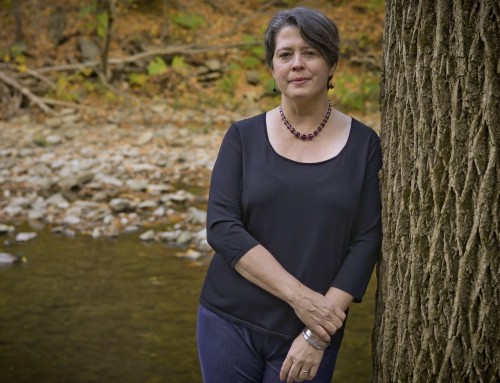 The New York Times observes that the “resistance” is quieter this inauguration day, foregoing the pink hats and large marches of eight years ago. For some, this may be a sign of acquiescence to the agenda of the second Trump administration. For me and many I know, I sense something less fatalistic—a desire to be more grounded and strategic this time around. Instead of travel to DC, I started today by lighting a candle and reflecting on my favorite version of the Serenity Prayer:
The New York Times observes that the “resistance” is quieter this inauguration day, foregoing the pink hats and large marches of eight years ago. For some, this may be a sign of acquiescence to the agenda of the second Trump administration. For me and many I know, I sense something less fatalistic—a desire to be more grounded and strategic this time around. Instead of travel to DC, I started today by lighting a candle and reflecting on my favorite version of the Serenity Prayer:
God give us grace, to accept with serenity the things that cannot be changed, courage to change the things that should be changed, and the wisdom to distinguish the one from the other.
This is a little different from the version that shows up on coffee mugs or is said in AA meetings. For starters, it acknowledges that some things “should be changed,” which makes sense when you realize that both versions of the prayer were written by Reinhold Niebuhr, an early critic of the KKK and Hitler.
Years ago, before I became a climate activist, I wrote a book on the Serenity Prayer called The Wisdom to Know the Difference, which shares stories from different people who have navigated the question of when to try to make change and when to let go and accept what is. In thinking about how this applied to social change, I focused on the fact that what we can change together is much greater than what any one of us can do alone. Since then—as I’ve studied social change theory and history—I’ve realized that there is also something important about a willingness to take a “fearless moral inventory,” as they say in recovery groups. In other words, if we want to change what should be changed, we need to learn from our mistakes.
One thing many people learned over the past eight years is that marches have limited impact, something I explore in my online course on effective activism. Although I drafted that material a few years ago, it still holds true that large mobilizations are most effective when combined with other ongoing tactics, such as civil disobedience, law suites, or advocacy.
 Many of us have also learned that dehumanizing political leaders or their supporters doesn’t make our position more appealing to those in the political middle, a group that history shows is particularly important to have on your side when autocrats try to consolidate their power. While I empathize with the anger and fear that prompted someone to make this sign for the Women’s March eight years ago, I also feel clear that implying that someone is shit hurts the cause more than it helps it. (Having said that, I’m going to put “other people’s posters” into the category of things I won’t spend my energy trying to change.)
Many of us have also learned that dehumanizing political leaders or their supporters doesn’t make our position more appealing to those in the political middle, a group that history shows is particularly important to have on your side when autocrats try to consolidate their power. While I empathize with the anger and fear that prompted someone to make this sign for the Women’s March eight years ago, I also feel clear that implying that someone is shit hurts the cause more than it helps it. (Having said that, I’m going to put “other people’s posters” into the category of things I won’t spend my energy trying to change.)
Rather than empty expressions of outrage, I’m hoping we’ll see more direct intervention from those who hope to thwart policies they oppose. That could mean quietly sheltering someone threatened with deportation, or emotionally supporting your trans students when your state bans gender neutral bathrooms. Or it could mean refusing to quit your government job when pressure to do so increases. Some will feel called to more disruptive acts of defiance. If new fossil fuel projects accelerate with even less government oversight, those who stand in the way of the bulldozers could well face more repression. Especially when considering actions that could be risky, I think it’s important to draw on spiritual or grounding practices to help us determine what is or isn’t ours to do. (This is part of what I’ll be talking about at the FGC Gathering on February 8.)
One fact about Martin Luther King, Jr. that gets left out of most days of service is that he prayed for both guidance and courage. Not everyone is called to put their life at risk, but if we claim to be inspired by someone who did, we must take seriously the possibility that we could be called to do something scarier than we would like. Another lesson from the Civil Rights Movement is that it was many people acting, marching, and singing together that helped people to be bold. That gets left out, too, when we focus only on one charismatic figure. There were many people who carried small parts of the load, whether that meant cooking for the church meetings, driving those who boycotted the buses, or marching when the police were standing on the other side of the bridge.
I don’t know yet what exactly I’ll be called to do. Maybe you don’t either. For now I feel some sense of peace knowing that I am not alone in listening for the next step forward.
love,
Eileen
P.S. My friends at Choose Democracy just shared some related resources. I’d love to hear what you find most useful:
- Are you working in the (federal) government? You may want this guide: Serve the People: a Guide for Civil Servants/Federal Employees/Military. Also familiarize yourself with this new forming group: Civil Service Strong, which offers comprehensive resources for civil servants.
- Are you working on supporting immigrants? Siembra NC has a standout resource called Defend and Recruit. It explains how to jumpstart multiple strategies from defense hotlines to ICE watch to neighborhood-based defense committees. They are organizing nationally and want to connect with others preparing such resistance.
- Are you trying to use constituent power to make elected officials more representative? Indivisible created a lovely resource called Indivisible: a practical guide to democracy on the brink. Helpful seeing the local, state, and national strategies for applying pressure on representatives whether you’re in so-called Red/Blue/Purple districts.
- Want to plug in but have no idea where to start? We worked with friends to create the Resistance Guidebook — with practical ideas about starting points for people who are feeling the need to do something but not sure about what.






Leave A Comment